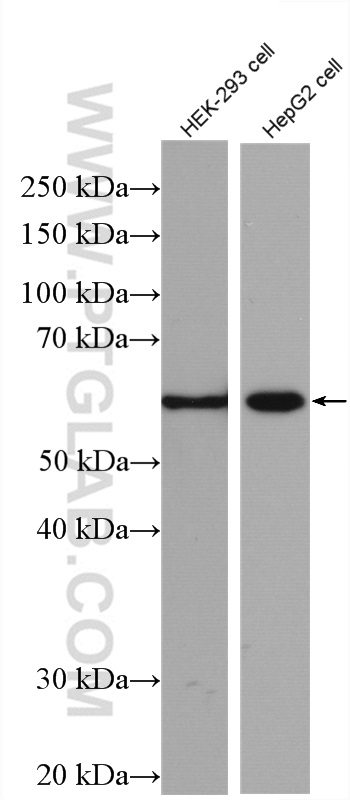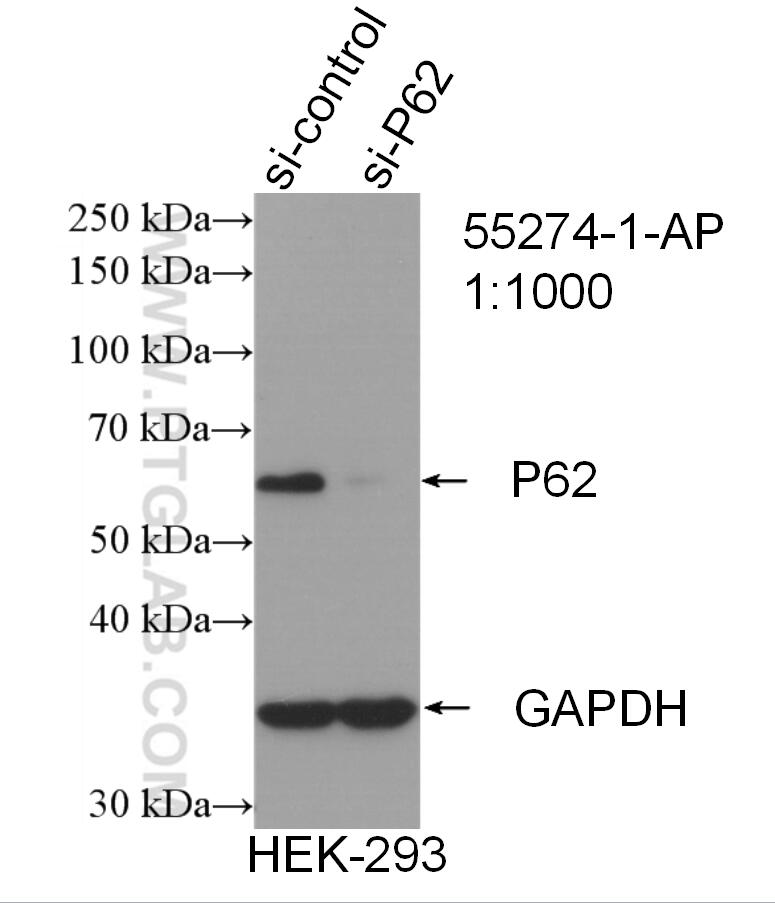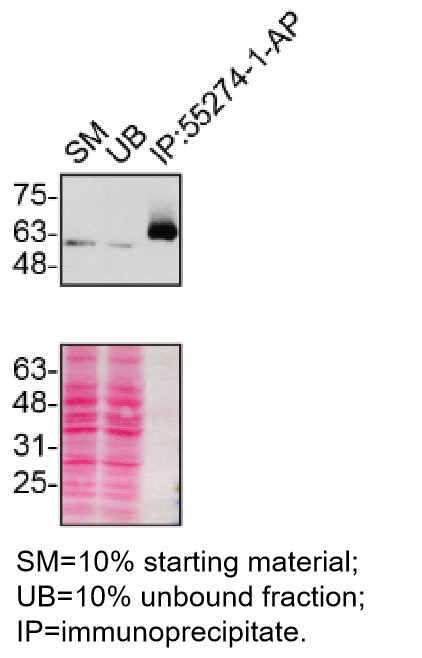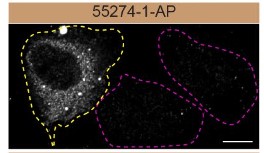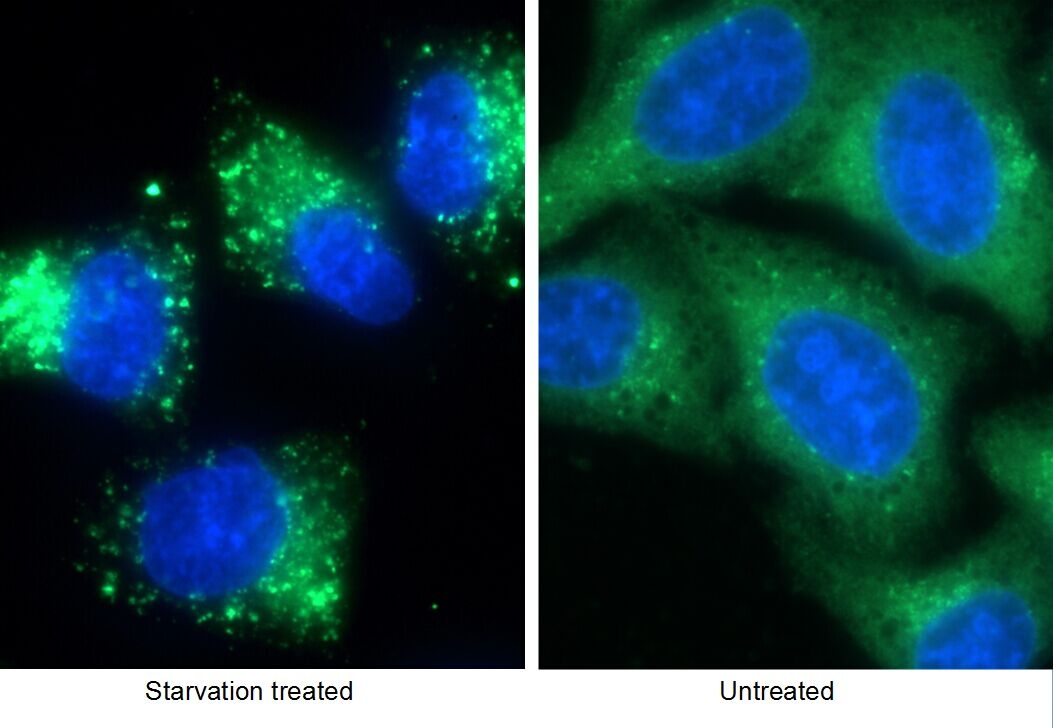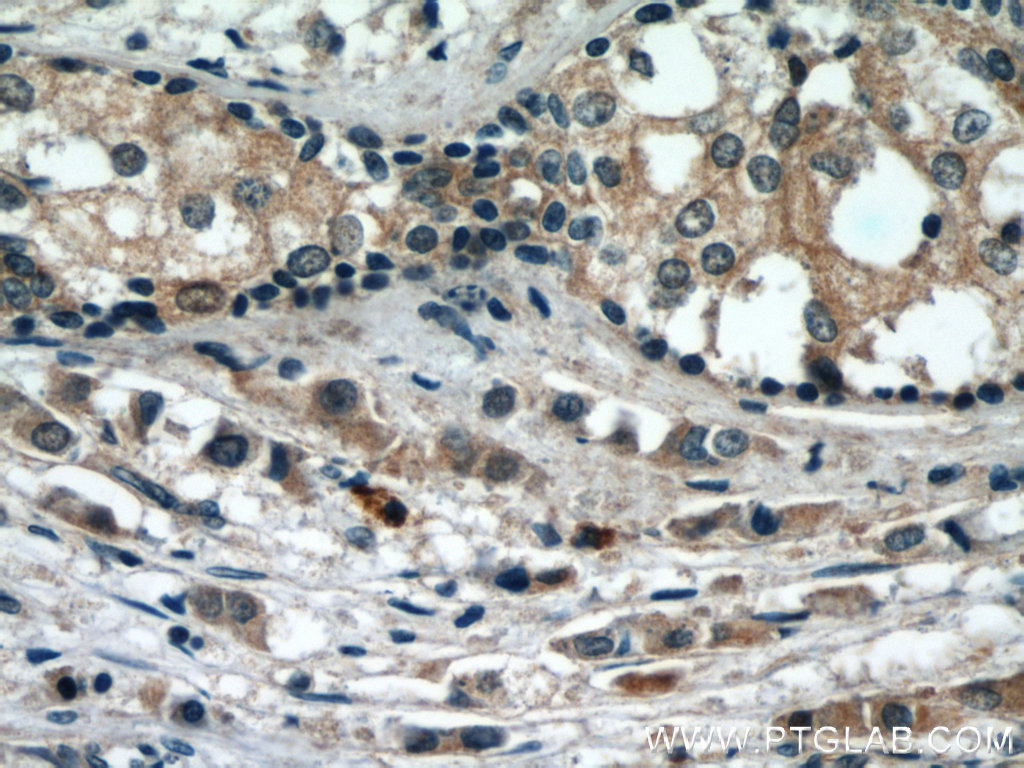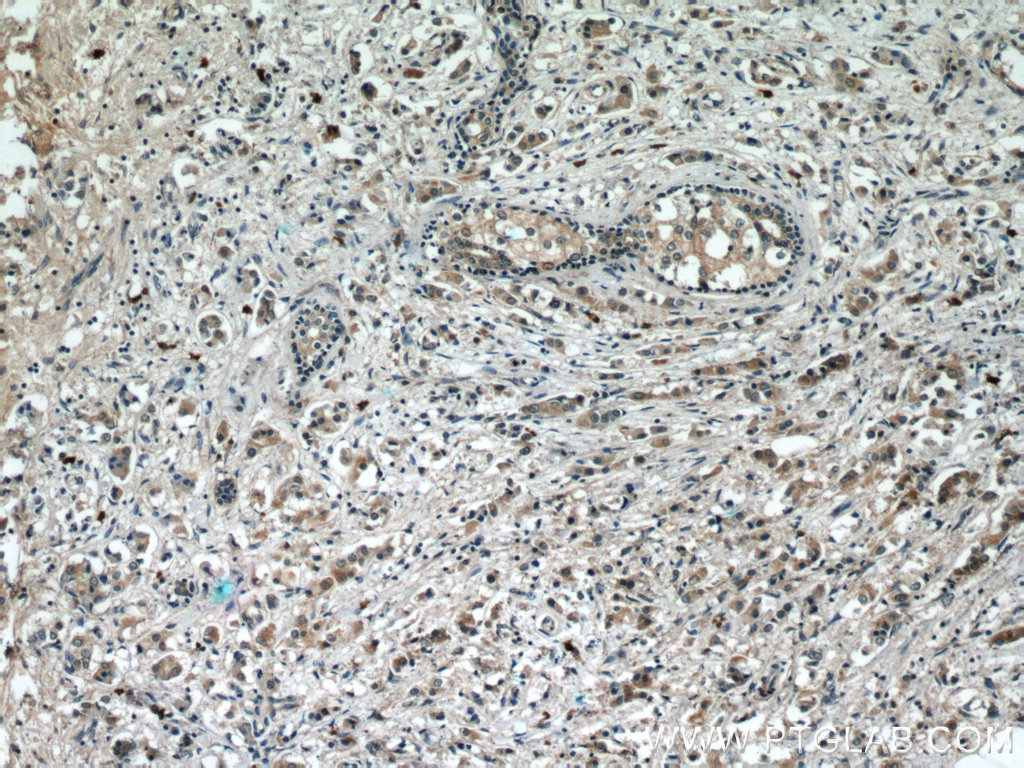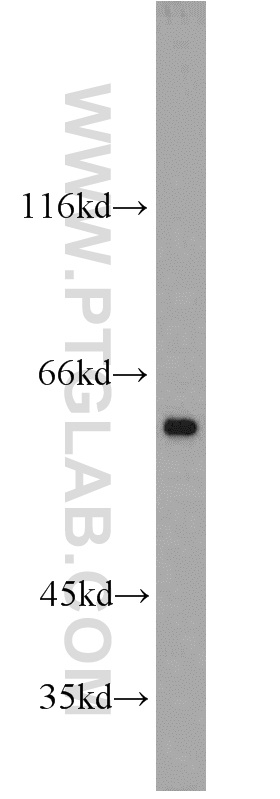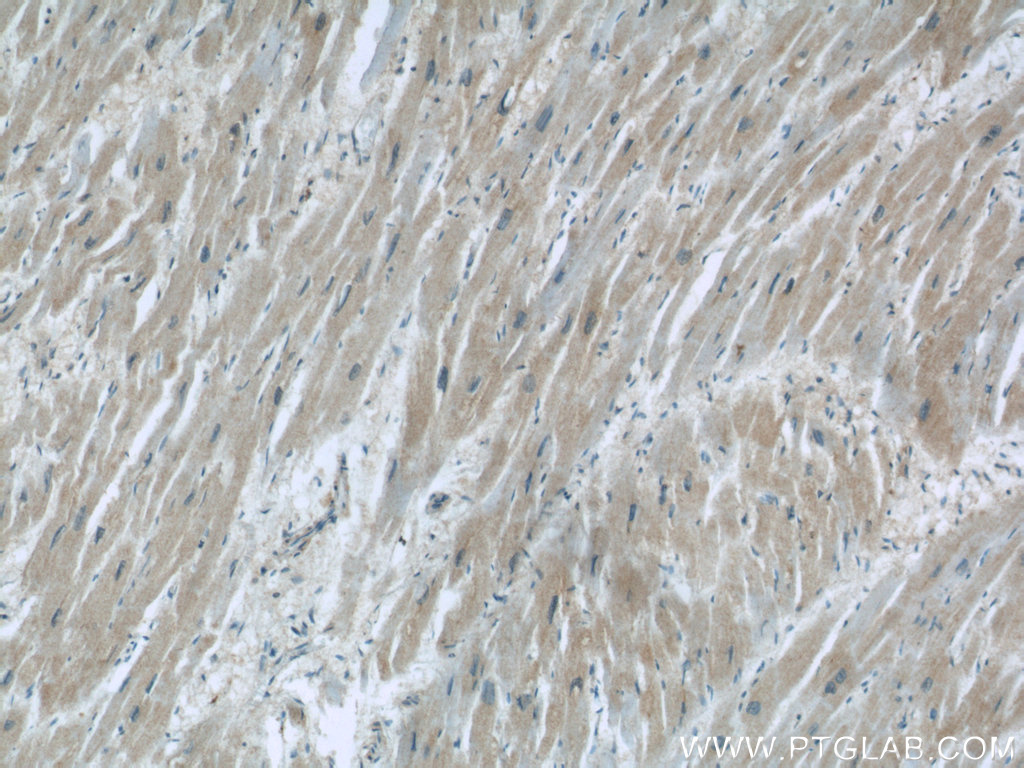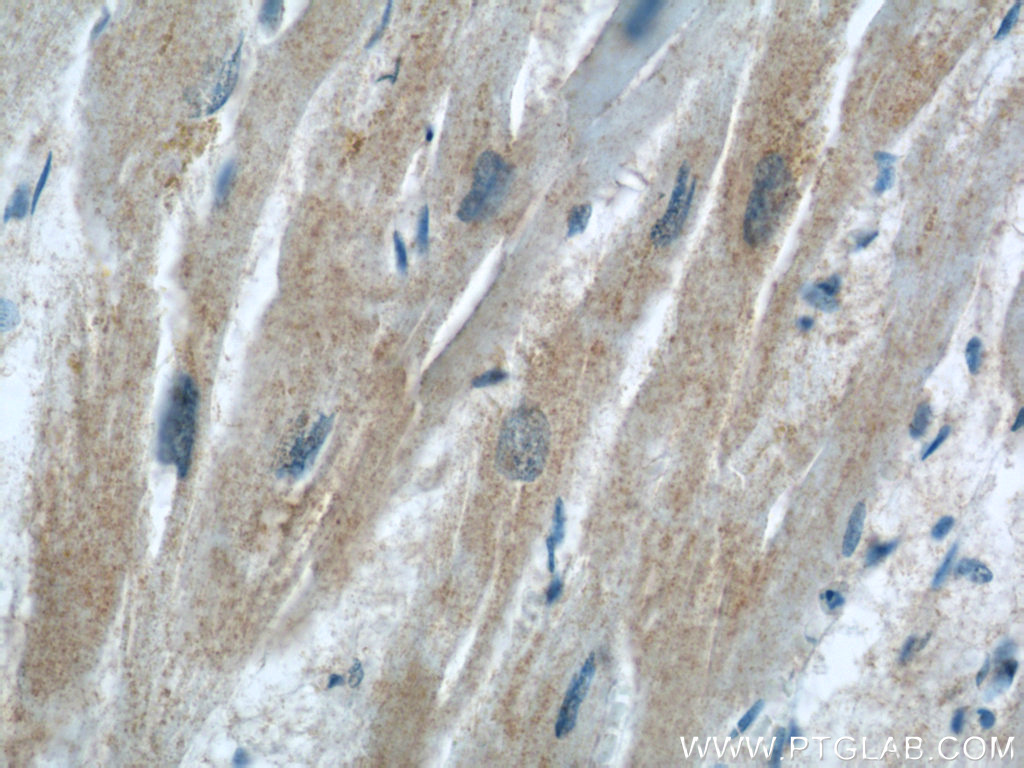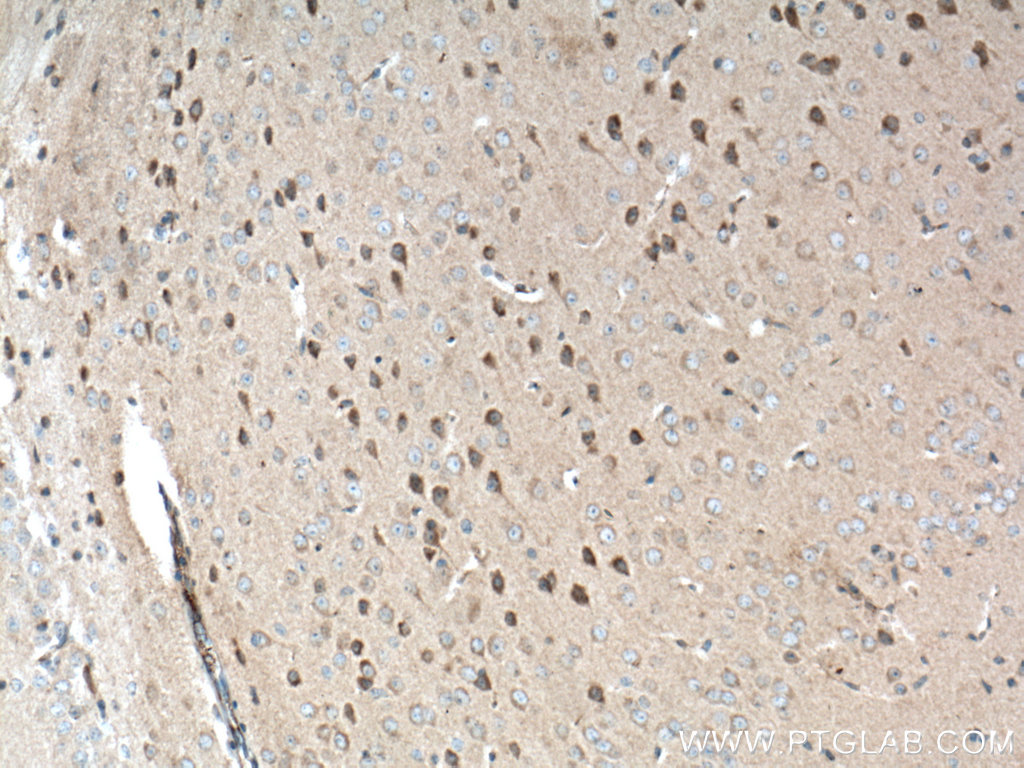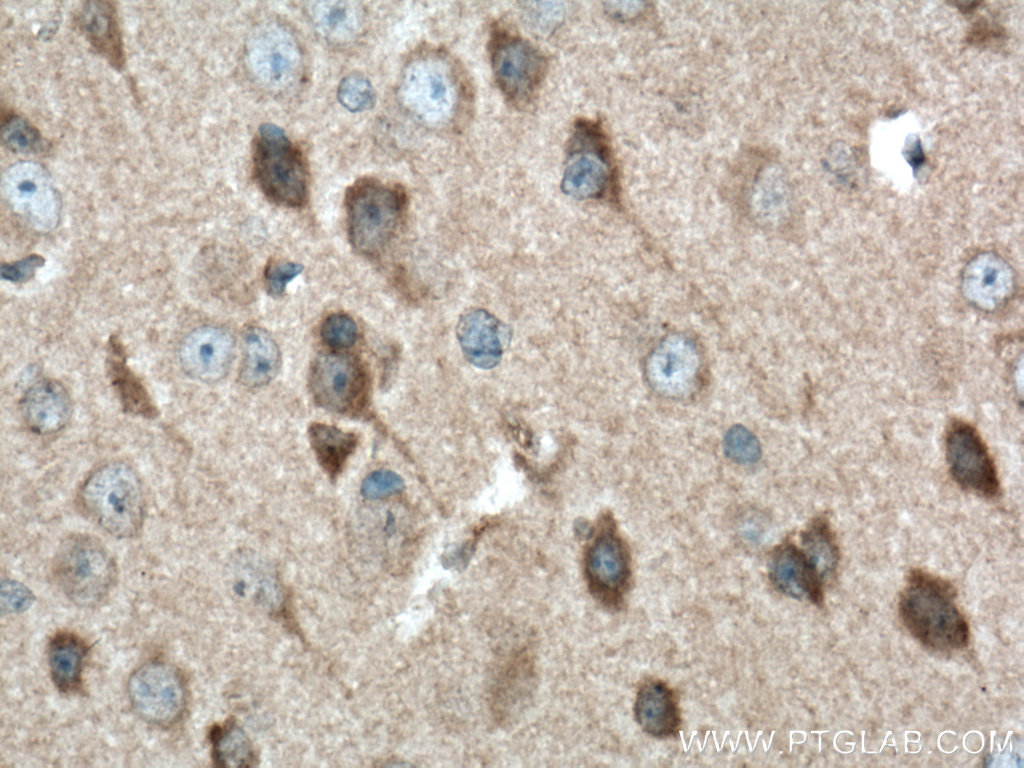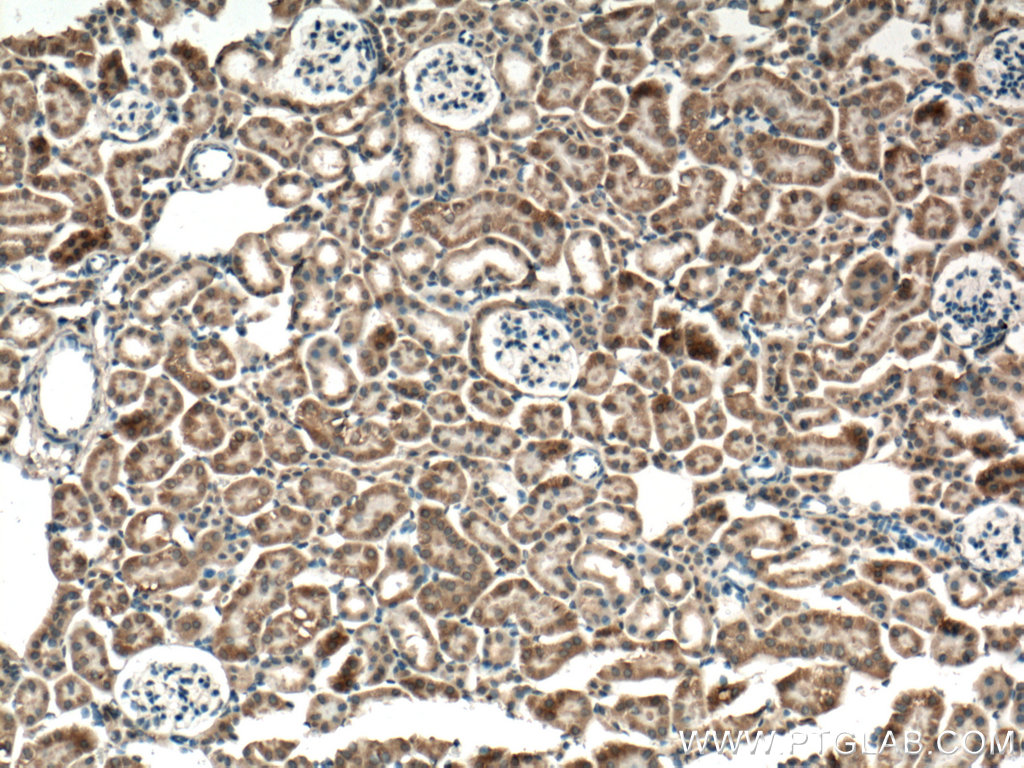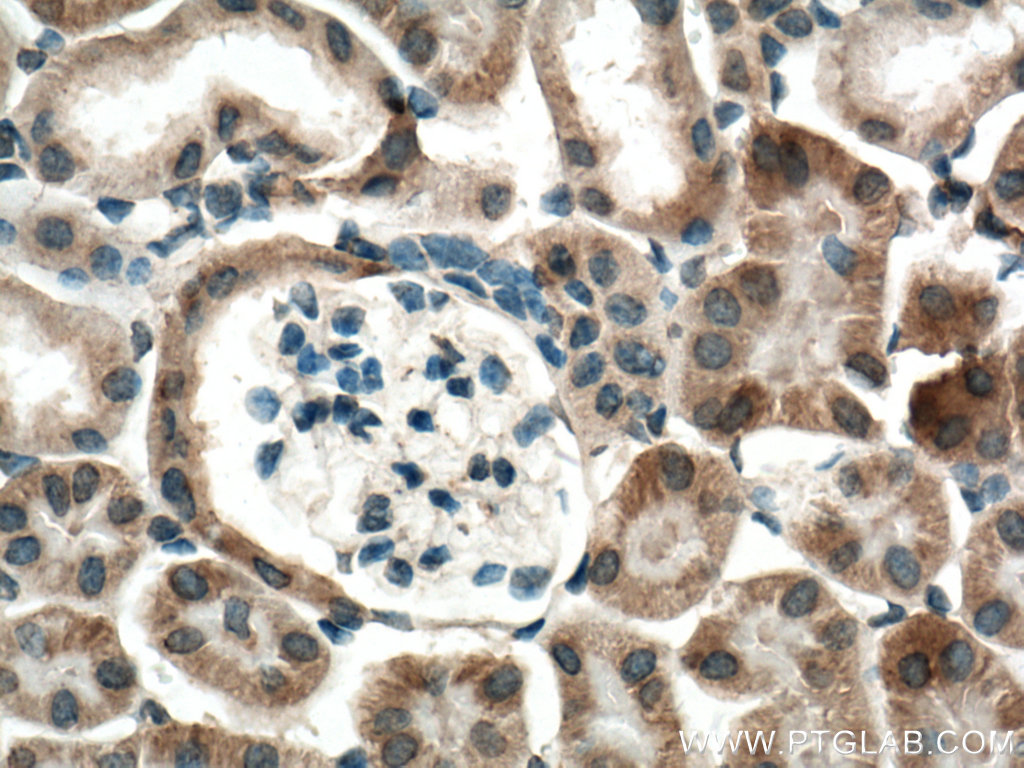验证数据展示
经过测试的应用
| Positive WB detected in | HEK-293 cells, MCF-7 cells, HepG2 cells |
| Positive IP detected in | U2OS cells |
| Positive IHC detected in | human breast cancer tissue, mouse brain tissue, mouse kidney tissue, human heart tissue Note: suggested antigen retrieval with TE buffer pH 9.0; (*) Alternatively, antigen retrieval may be performed with citrate buffer pH 6.0 |
| Positive IF/ICC detected in | HepG2 cells, U2OS cells |
推荐稀释比
| 应用 | 推荐稀释比 |
|---|---|
| Western Blot (WB) | WB : 1:500-1:1000 |
| Immunoprecipitation (IP) | IP : 0.5-4.0 ug for 1.0-3.0 mg of total protein lysate |
| Immunohistochemistry (IHC) | IHC : 1:20-1:200 |
| Immunofluorescence (IF)/ICC | IF/ICC : 1:20-1:200 |
| It is recommended that this reagent should be titrated in each testing system to obtain optimal results. | |
| Sample-dependent, Check data in validation data gallery. | |
产品信息
55274-1-AP targets P62/SQSTM1 in WB, IHC, IF/ICC, IP, ELISA applications and shows reactivity with human, mouse, rat samples.
| 经测试应用 | WB, IP, IF, IHC, ELISA Application Description |
| 文献引用应用 | WB, IHC, IF, IP |
| 经测试反应性 | human, mouse, rat |
| 文献引用反应性 | human, mouse, rat |
| 免疫原 | Peptide 种属同源性预测 |
| 宿主/亚型 | Rabbit / IgG |
| 抗体类别 | Polyclonal |
| 产品类型 | Antibody |
| 全称 | sequestosome 1 |
| 别名 | P62, P62/SQSTM1, sequestosome 1, SQSTM1, Ubiquitin binding protein p62 |
| 计算分子量 | 48 kDa |
| 观测分子量 | 60 kDa |
| GenBank蛋白编号 | NM_003900 |
| 基因名称 | P62/SQSTM1 |
| Gene ID (NCBI) | 8878 |
| RRID | AB_11182278 |
| 偶联类型 | Unconjugated |
| 形式 | Liquid |
| 纯化方式 | Antigen affinity purification |
| UNIPROT ID | Q13501 |
| 储存缓冲液 | PBS with 0.02% sodium azide and 50% glycerol , pH 7.3 |
| 储存条件 | Store at -20°C. Stable for one year after shipment. Aliquoting is unnecessary for -20oC storage. |
背景介绍
SQSTM1, also named as ORCA, OSIL, p60, EBIAP, A170, PDB3, ZIP3, p62 and p62B, is an adapter protein which binds ubiquitin and may regulate the activation of NFKB1 by TNF-alpha, nerve growth factor (NGF) and interleukin-1. It may play a role in titin/TTN downstream signaling in muscle cells. SQSTM1 may regulate signaling cascades through ubiquitination. It is an adapter that mediates the interaction between TRAF6 and CYLD. SQSTM1 may be involved in cell differentiation, apoptosis, immune response and regulation of K+ channels (PMID: 10356400). This antibody is specific to SQSTM1.
实验方案
| Product Specific Protocols | |
|---|---|
| WB protocol for P62/SQSTM1 antibody 55274-1-AP | Download protocol |
| IHC protocol for P62/SQSTM1 antibody 55274-1-AP | Download protocol |
| IF protocol for P62/SQSTM1 antibody 55274-1-AP | Download protocol |
| Standard Protocols | |
|---|---|
| Click here to view our Standard Protocols |
发表文章
| Species | Application | Title |
|---|---|---|
Nat Commun Autophagy-mediated apoptosis eliminates aneuploid cells in a mouse model of chromosome mosaicism. | ||
Cell Death Differ CRSP8 promotes thyroid cancer progression by antagonizing IKKα-induced cell differentiation. | ||
Autophagy An integrative multi-omics approach uncovers the regulatory role of CDK7 and CDK4 in autophagy activation induced by silica nanoparticles. | ||
Front Pharmacol Morroniside Inhibits H2O2-Induced Podocyte Apoptosis by Down-Regulating NOX4 Expression Controlled by Autophagy In Vitro. | ||
Front Pharmacol Resolvin D1 attenuates CCl4 Induced Liver Fibrosis by Inhibiting Autophagy-Mediated HSC activation via AKT/mTOR Pathway | ||
Nutrients Punicalagin Prevents Inflammation in LPS-Induced RAW264.7 Macrophages by Inhibiting FoxO3a/Autophagy Signaling Pathway. |
